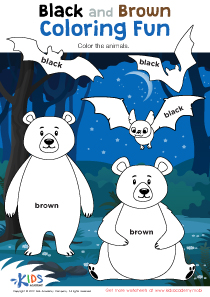Letter Tracing English for Beginners Worksheets for Ages 3-5
6 filtered results
-
From - To
Discover our engaging "Letter Tracing English for Beginners Worksheets" designed specifically for children ages 3-5. These fun and interactive worksheets help young learners develop essential writing skills while familiarizing themselves with the English alphabet. Each worksheet focuses on individual letters, featuring dotted lines for tracing and vibrant illustrations to keep kids motivated. Ideal for both home and classroom settings, our resources foster fine motor skills and enhance letter recognition. With a variety of exercises, these worksheets make learning enjoyable and effective, laying a solid foundation for future reading and writing. Start your child's educational journey with our vibrant letter tracing worksheets today!


Letter A Coloring Sheet
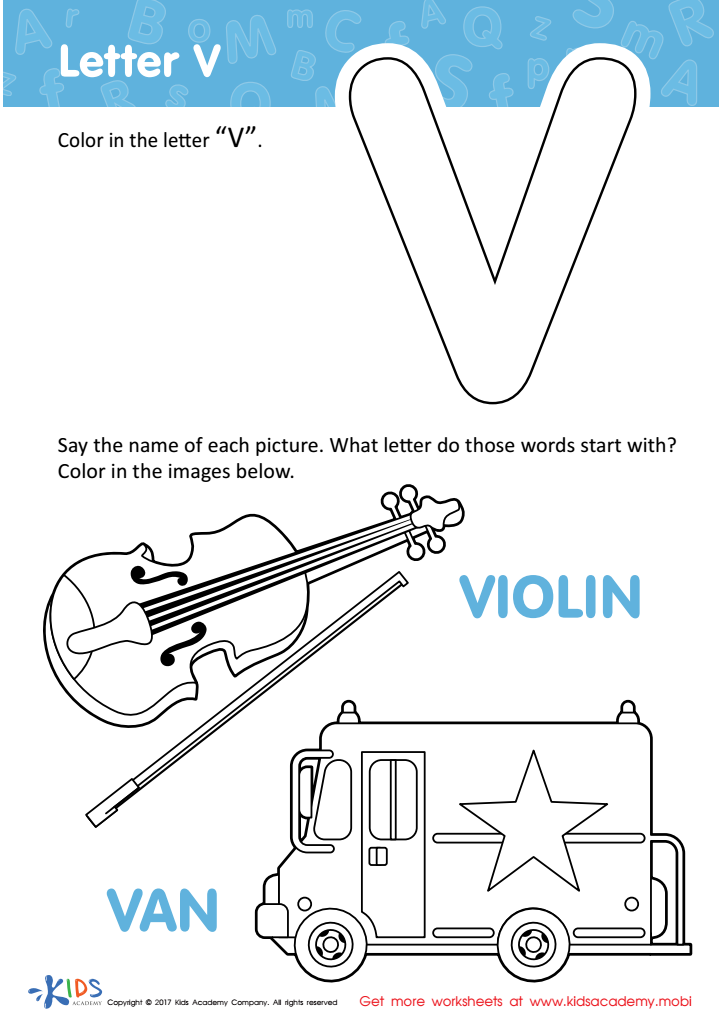

Letter V Coloring Sheet
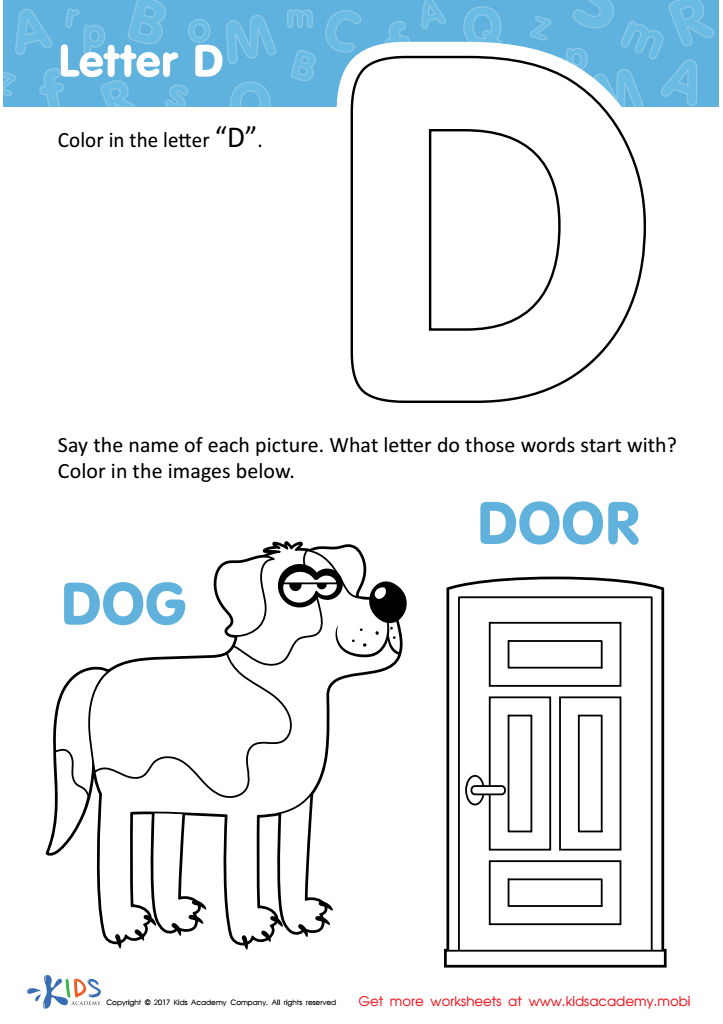

Letter D Coloring Sheet
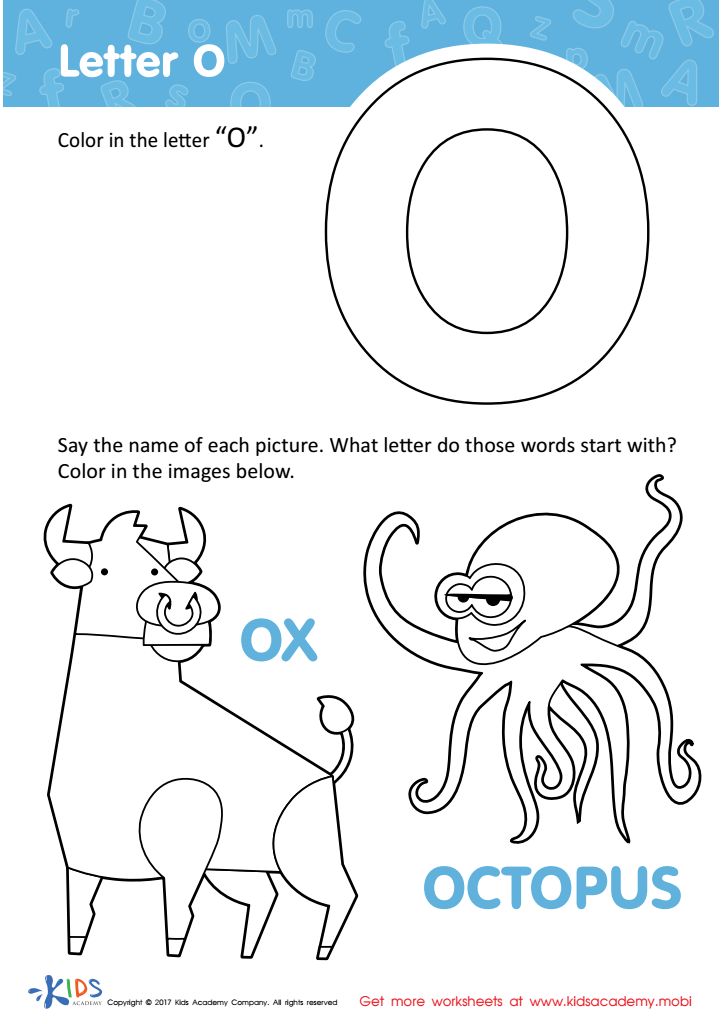

Letter O Coloring Sheet
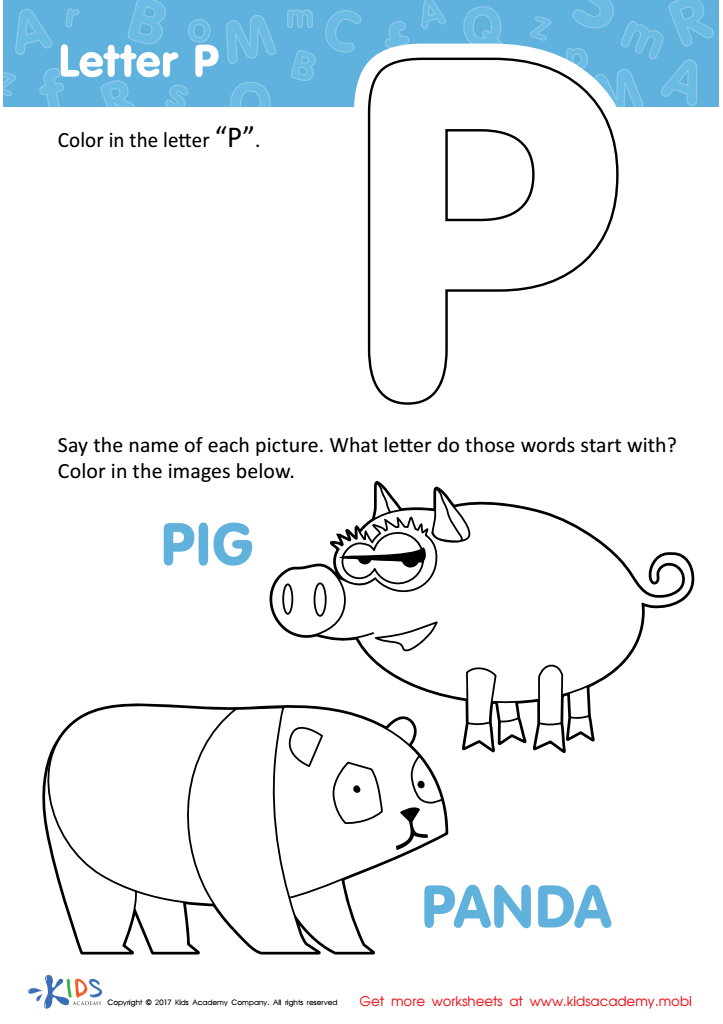

Letter P Coloring Sheet
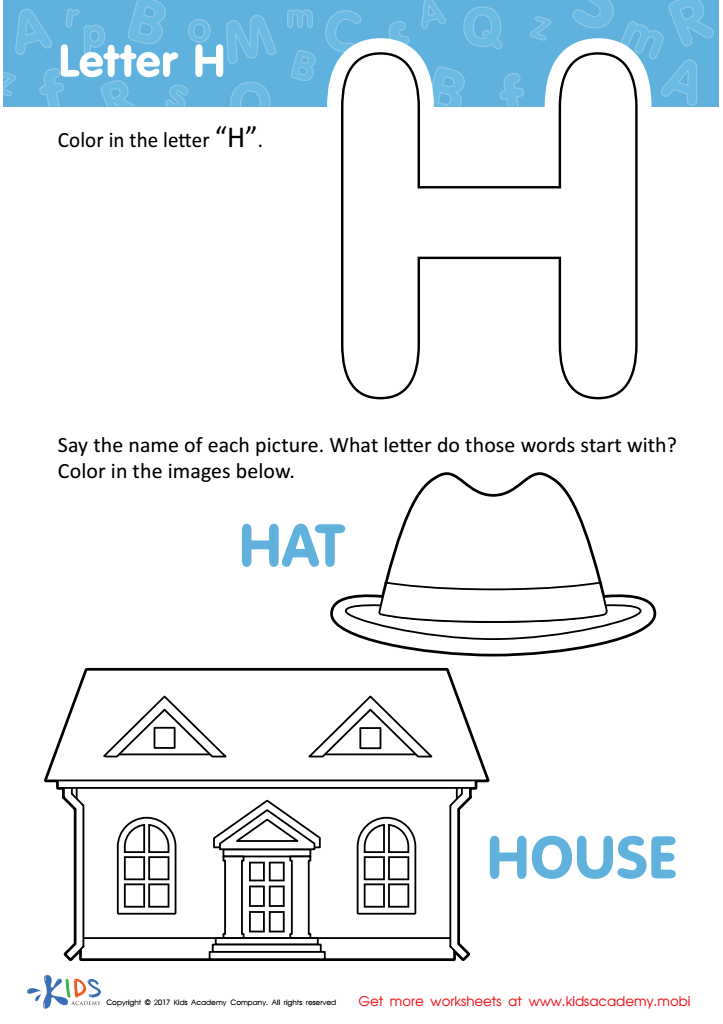

Letter H Coloring Sheet
Letter tracing is an essential foundational activity for children aged 3-5, making it imperative for parents and teachers to engage with this skill. First and foremost, letter tracing helps develop fine motor skills, which are crucial for young children's overall dexterity and coordination. These skills are not only necessary for writing but also for daily activities such as buttoning shirts and manipulating toys.
Moreover, tracing letters reinforces letter recognition and phonetic awareness, both of which are vital for early literacy. As children trace, they simultaneously visualize and verbalize the letters, strengthening their ability to identify and sound out these letters later when they encounter them in reading and writing contexts.
Additionally, letter tracing builds confidence and a sense of accomplishment in children. The activity provides immediate feedback, as children can see their progress and improvement, fostering a positive attitude towards learning. Finally, incorporating letter tracing into daily routines supports parents and teachers by making learning both enjoyable and structured, ensuring that children develop essential skills during their critical formative years. Engaging young learners in tracing letters lays a solid groundwork for their future educational journeys, making it a valuable focus for parents and educators alike.
 Assign to My Students
Assign to My Students









